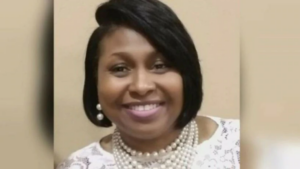Last Monday, María Felícitas Infante Zamora and her siblings heard from Texas prison officials that their father, Bartolo Infante, had died. Infante, 72, had been in prison since 2000 for a sexual assault.
The family did not learn the cause of death directly from officials: They only learned that he had tested positive for COVID-19 from a news article they came across on Facebook days later.
Then came another blow. Infante’s relatives could not afford to hold their own funeral, so the Texas Department of Criminal Justice said it would bury him at a prison cemetery. But the family would not be able to attend the burial because gatherings put people at increased risk of contracting or spreading the virus.
“They said, ‘We’re just going to give you a picture of him and that’s it,’” Zamora said. The picture would be of her father’s body at his funeral on Thursday.
Unemployed African Americans Should Upload Their Resumes to BlackJobs.com
Infante was incarcerated in the Telford Unit, near the Arkansas border, but will be buried at a prison cemetery in Huntsville, roughly 150 miles from Lockhart, where Zamora and her mother live.
A TDCJ spokesman, Jeremy Desel, said he had no specific information about why the family was told they could not attend, but pointed out that outside of prisons, many funerals have been postponed as state and local governments ban public gatherings to halt virus transmission.
At least 63 people in state and federal custody have died from the coronavirus, according to data collected by The Marshall Project. We reached eight families who lost someone to the pandemic. Some are still wrangling with prison officials to even obtain the bodies of their loved ones and to learn basic information about their final days. And their grief is compounded by the fact they’ll have to mourn at a safe distance from their families as coronavirus puts large gatherings on hold.
Given the massive number of elderly prisoners around the country, deaths are hardly rare in federal and state prisons, as well as jails. Every state and county has its own protocol for what it will pay for and what happens when family members either cannot be found or are unable or unwilling to handle the remains and arrangements.
In New York, the unclaimed are buried in mass graves on Hart Island in the Bronx. In Illinois, where several people incarcerated at Stateville prison have died from coronavirus, the decision to bury or cremate the unclaimed dead is left up to each warden. Officials in New Jersey cover the cost of cremation for any unclaimed person.
Source: Coronavirus is Keeping Prison Families From Saying Their Last Goodbyes




Recent Comments